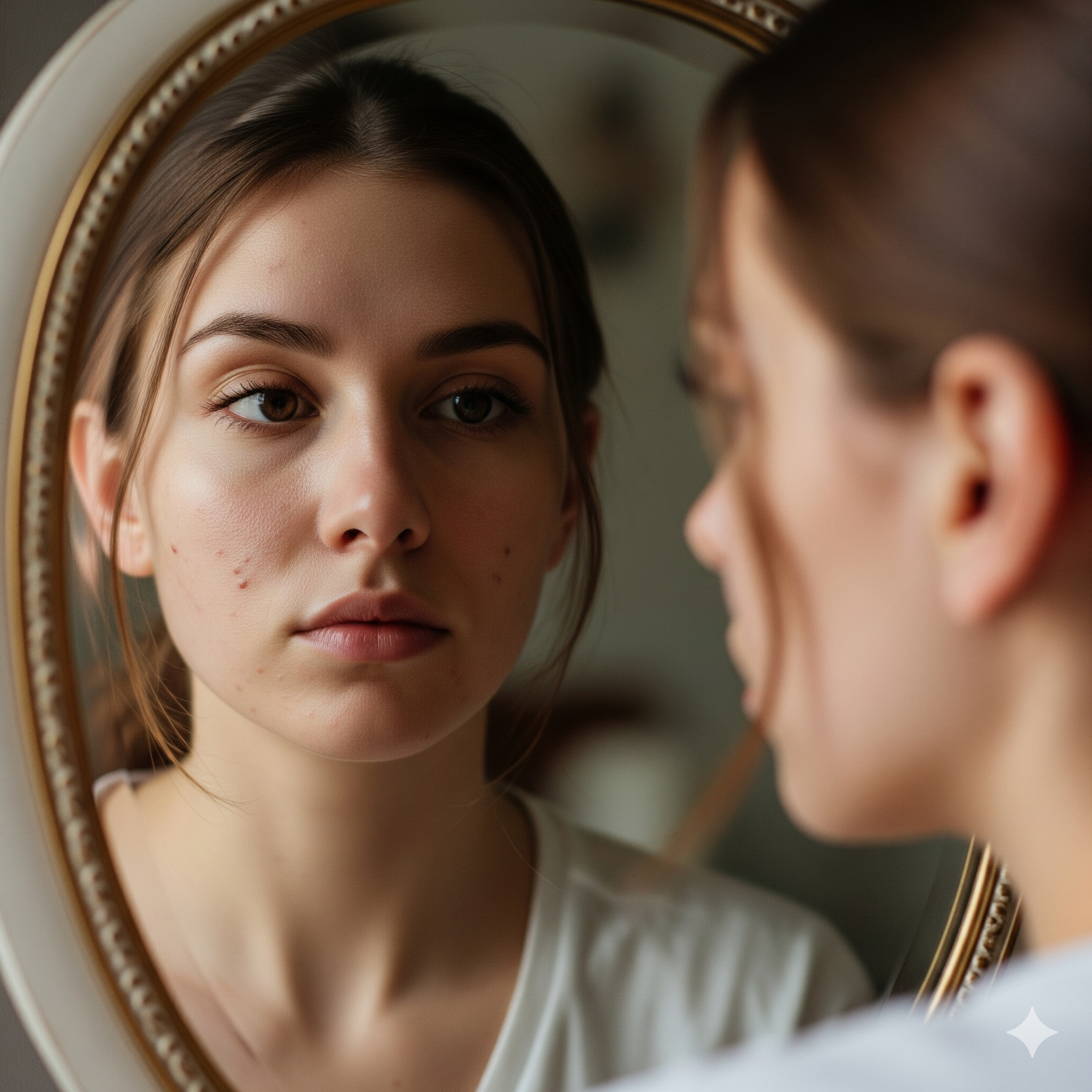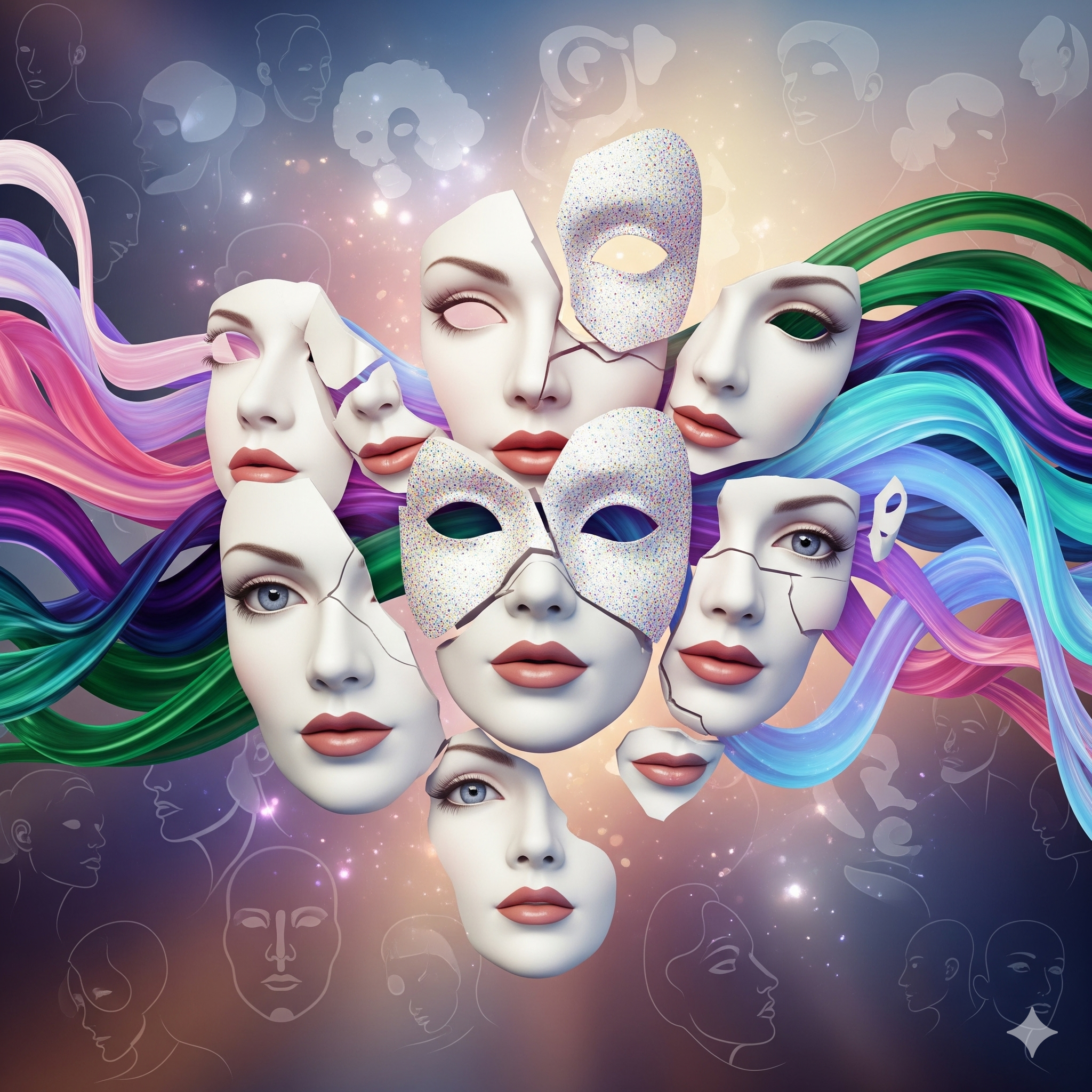-1758261235950.webp)
Lately, our social media feeds have been infiltrated by an army of digital doppelgängers. These aren't just retouched photos—they're AI-generated portraits showcasing flawless skin, perfect hair, and a background straight out of a movie.
While these trends—from the Nano Banana trend to Ghibli-style portraits—are undeniably fun, a darker truth lies beneath the surface. This technology is creating a sanitised, perfected version of ourselves that is quietly pushing us further away from reality and deeper into our own insecurities.
The fundamental problem with these AI portraits is that they're built on an algorithm’s very specific and narrow idea of beauty. Trained on massive datasets of what society deems ‘beautiful’, these tools learn to smooth every pore, erase every blemish, and give us a look we could never achieve on our own.
It's a high-tech form of airbrushing, but instead of merely editing a photo, it's fabricating a perfect, fictional version of you. We are no longer just comparing ourselves to celebrities or models—we are now competing with a digital ideal of our own face. When we look in the mirror, our real, unfiltered reflection simply can't compete. This isn't just about a passing fad—it's about a new, impossible standard that is being set for us by a machine.
This has a profound impact on our sense of self. The AI-generated image becomes our new benchmark, an idealised version of ourselves that we can never truly become. This creates a relentless cycle of comparison and disappointment.
We see the flawless digital portrait and then feel a pang of dissatisfaction when we look at our own skin, with its natural texture and imperfections. The gap between our perception of ourselves and our reality widens, leading to feelings of inadequacy and a desire to ‘fix’ what the AI has deemed imperfect. The new benchmark for beauty isn't a human anymore—it's a digitally perfected version of ourselves, and that's a competition we are destined to lose.

This trend is a one-two punch to our self-esteem, with lasting consequences. First, it directly contributes to filter dysmorphia, a term coined by mental health professionals to describe a feeling of intense dissatisfaction with one's appearance because it doesn't match a digitally altered version. We start to see our natural features—the small, beautiful imperfections that make us human—as flaws that need to be erased.
We begin to believe that our actual, physical appearance is ‘wrong’ or ‘not good enough’, and this can fuel a desire for cosmetic procedures to achieve a look that, in reality, is nothing more than a digital fantasy.
AI is also making social media an even more unreliable source of reality than it already was. We’ve grown accustomed to seeing highly curated highlight reels and perfectly staged moments, but these new AI tools introduce a completely fabricated layer. Our feeds are becoming saturated with images that don't just conceal flaws—they create an entirely new, flawless reality. As we scroll through an endless parade of perfect faces, our sense of what is ‘normal’ becomes dangerously skewed.
We start to believe that this level of perfection is real and attainable, making us feel worse about ourselves for not having it. This creates a relentless cycle of comparison that leaves us feeling perpetually inadequate and isolated, reinforcing the false idea that our real, unedited selves are not worthy.
Don't miss: Light Skin, Dark Legacy: How Colonial Beauty Standards Continue to Shape Colourism In India

In the end, these AI photo trends are more than just a harmless social media fad. They are a symptom of our culture's relentless obsession with perfection, and technology is now enabling this pursuit with unprecedented efficiency.
It's a paradox of the digital age: in a world where we have the tools to show our authentic, true selves to a global audience, we are instead choosing to hide behind a veil of digital perfection. And in doing so, we are not just losing touch with reality; we are losing touch with ourselves. It's a subtle but significant erosion of our collective self-esteem. Perhaps it is time we step away from the digital mirror and start celebrating the perfectly imperfect, beautiful, and very real humans we are.
Don't miss: 5 Times Bollywood Actresses Opened Up About Unrealistic Beauty Standards
Image courtesy: Gemini
For more such stories, stay tuned to HerZindagi.
Also watch this video
Herzindagi video
Our aim is to provide accurate, safe and expert verified information through our articles and social media handles. The remedies, advice and tips mentioned here are for general information only. Please consult your expert before trying any kind of health, beauty, life hacks or astrology related tips. For any feedback or complaint, contact us at compliant_gro@jagrannewmedia.com.